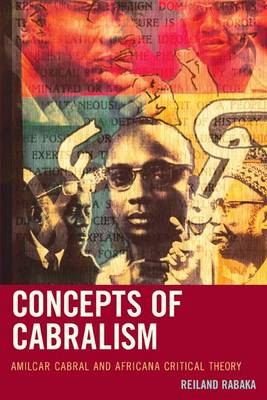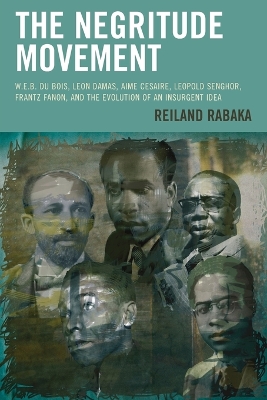Critical Africana Studies
2 total works
By examining Amilcar Cabral's theories and praxes, as well as several of the antecedents and major influences on the evolution of his radical politics and critical social theory, Concepts of Cabralism: Amilcar Cabral and Africana Critical Theory simultaneously reintroduces, chronicles, and analyzes several of the core characteristics of the Africana tradition of critical theory. Reiland Rabaka's primary preoccupation is with Cabral's theoretical and political legacies-that is to say, with the ways in which he constructed, deconstructed, and reconstructed theory and the aims, objectives, and concrete outcomes of his theoretical applications and discursive practices. The book begins with the Negritude Movement, and specifically the work of Leopold Senghor, Aime Cesaire, and Jean-Paul Sartre. Next, it shifts the focus to Frantz Fanon's discourse on radical disalienation and revolutionary decolonization. Finally, it offers an extended engagement of Cabral's critical theory and contributions to the Africana tradition of critical theory. Ultimately, Concepts of Cabralism chronicles and critiques, revisits and revises the black radical tradition with an eye toward the ways in which classical black radicalism informs, or should inform, not only contemporary black radicalism, African nationalism, and Pan-Africanism, but also contemporary efforts to create a new anti-racist, anti-sexist, anti-capitalist, anti-colonialist, and anti-imperialist critical theory of contemporary society-what has come to be called "Africana critical theory."
The Negritude Movement provides readers with not only an intellectual history of the Negritude Movement but also its prehistory (W.E.B. Du Bois, the New Negro Movement, and the Harlem Renaissance) and its posthistory (Frantz Fanon and the evolution of Fanonism). By viewing Negritude as an "insurgent idea" (to invoke this book's intentionally incendiary subtitle), as opposed to merely a form of poetics and aesthetics, The Negritude Movement explores Negritude as a "traveling theory" (a la Edward Said's concept) that consistently crisscrossed the Atlantic Ocean in the twentieth century: from Harlem to Haiti, Haiti to Paris, Paris to Martinique, Martinique to Senegal, and on and on ad infinitum. The Negritude Movement maps the movements of proto-Negritude concepts from Du Bois's discourse in The Souls of Black Folk through to post-Negritude concepts in Fanon's Black Skin, White Masks and The Wretched of the Earth. Utilizing Negritude as a conceptual framework to, on the one hand, explore the Africana intellectual tradition in the twentieth century, and, on the other hand, demonstrate discursive continuity between Du Bois and Fanon, as well as the Harlem Renaissance and Negritude Movement, The Negritude Movement ultimately accents what Negritude contributed to arguably its greatest intellectual heir, Frantz Fanon, and the development of his distinct critical theory, Fanonism. Rabaka argues that if Fanon and Fanonism remain relevant in the twenty-first century, then, to a certain extent, Negritude remains relevant in the twenty-first century.

